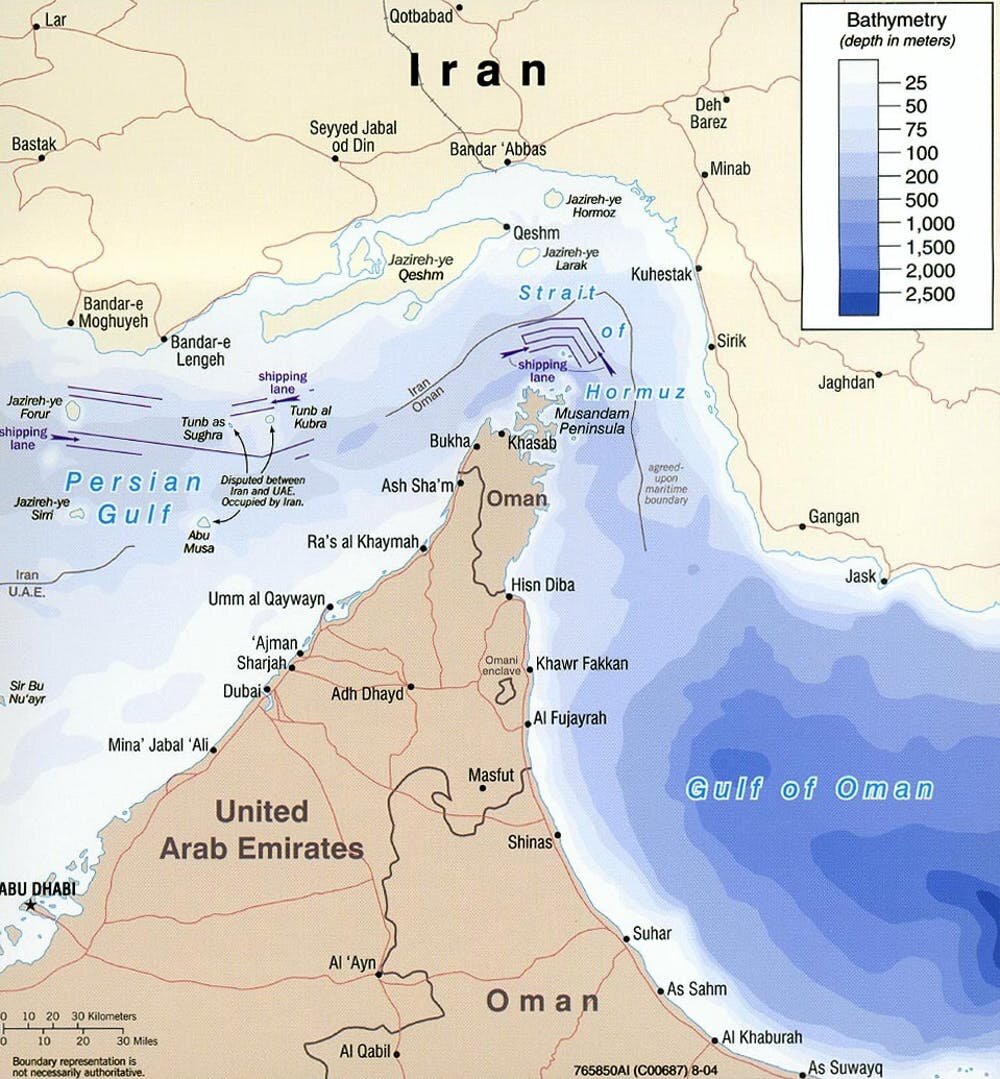International Relations
Iran Threatens to Close Strait of Hormuz
- 29 Apr 2019
- 3 min read
Iran has said that it could close the strategic Strait of Hormuz shipping route if it faces more “hostility,” from the United States.
- Recently, US tightened sanctions on Iran and lifted off Significant Reduction Exceptions (SREs) waivers.
- However, Iran has said that it will continue to sell its oil and use the Strait of Hormuz. But if Iran is prevented from doing that it will close the strait.
Hormuz Strait
- Strait of Hormuz, also called Strait of Ormuz, channel linking the Persian Gulf (west) with the Gulf of Oman and the Arabian Sea (southeast).
- The strait is 35 to 60 miles (55 to 95 km) wide and separates Iran (north) from the Arabian Peninsula (south).
- It contains the islands of Qeshm (Qishm), Hormuz, and Hengām (Henjām). It is of great strategic and economic importance.
Importance of Hormuz Strait
- Strategic Location
- Strait of Hormuz connects the Indian Ocean with the Arabian/Persian Gulf.
- Strait of Hormuz separates the modern Iranian state from the countries of Oman and the United Arab Emirates.
- The Strait of Hormuz is a strategic artery linking the Middle East to the Asia Pacific, Europe, North America.
- Commercial Shipping
- In the all recorded history, the seaway has connected Arab and Persian civilizations with the Indian subcontinent, Pacific Asia and the Americas. Porcelain from China and spices from the Indochina peninsula often passed through the strait on their way to Central Asia and Europe.
- All shipping traffic from energy-rich Gulf countries converges in the strait, including crude oil and liquefied natural gas exports from Iran, Iraq, Kuwait, Bahrain, Qatar, Saudi Arabia, and the United Arab Emirates.
- Thirty percent of the world’s crude oil trade passes through Strait of Hormuz. It is also the route for nearly all the liquefied natural gas (LNG) from lead exporter Qatar.
Impact of Closure
- Closure of Strait of Hormuz or even threatening can lead to a rise in crude oil price due to supply concerns and unsettled stock markets.
- It may also disrupt trade between the middle east and the rest of the world as commercial ships will not risk being confronted by the Iranian Navy.
- The closure may also have serious geopolitical repercussions as United States Navy’s Central Command is located in the Persian Gulf. Any confrontation between the US and Iran may escalate and will have larger security implication in the whole region.





